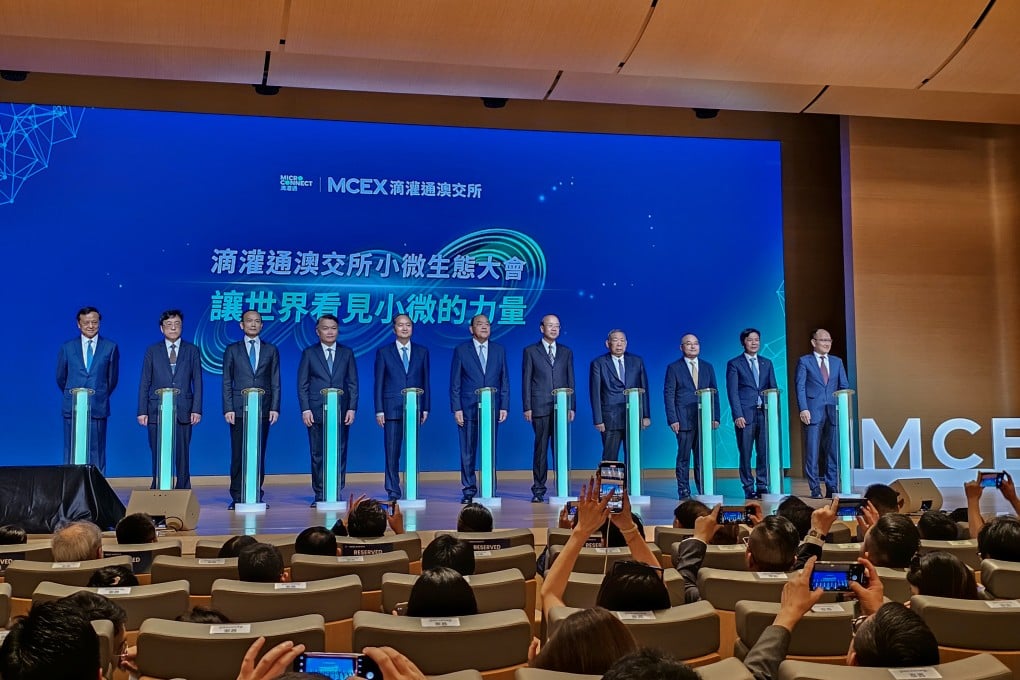Former HKEX CEO Charles Li Xiaojia’s firm Micro Connect launches fundraising platform for small Chinese businesses
- The official launch on Thursday of Micro Connect’s Macau-based exchange comes a day after the company announced US$458 million in new funding
- The 2-year-old company founded by Charles Li aims to build ‘the world’s largest financial market for micro and small business investing’, Li says

The launch ceremony of the Micro Connect Macau Financial Assets Exchange (MCEX) was attended by over 1,300 guests and hosted by Macau Chief Executive Ho Lat-seng and Secretary for Economy and Finance Lei Wai-nong, alongside the co-founders of the platform, Li and Gary Zhang.
“The MCEX can take advantage of Macau’s policy advantages and highly open financial system to guide international funds to invest in Macau,” Lei said during the ceremony at Galaxy International Convention Centre in Macau.
“By empowering micro and small businesses in Mainland China via the new interconnectivity mechanism, MCEX can help diversify Macau’s economy and contribute to the development of the Chinese economy.”
Micro Connect’s Li said the exchange is a new milestone in fundraising for Chinese companies.
